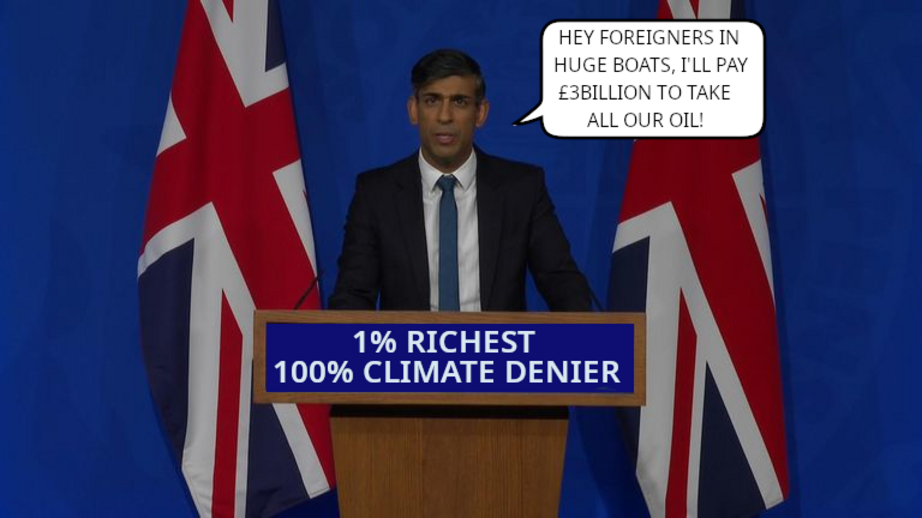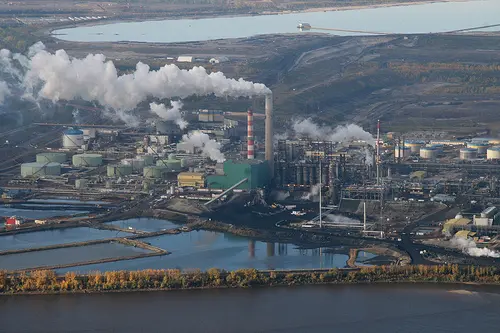Comment by dizzy on Rosebank and North Sea fossil fuel exploitation
In May 2022 then UK Chancellor Rishi Sunak sabotaged the oil and gas windfall tax so that it was converted to a huge fossil fuel subsidy driving fossil fuel exploitation of the North Sea. This is a massive implicit fossil fuel subsidy while the UK government claims not to participate in fossil fuel subsidies. The UK taxpayer will be 91% financing development of the proposed Rosebank Oil development in the North Sea near the Faroe Islands. It is difficult to see any monetary benefits or justifications for the UK government financing foreigners to take North Sea oil. The UK plays no part other than paying for it, giving it away and buying it back from the international market at market rates if needed. The oil is going abroad and will be bought from abroad. Somebody please ask Rishi Sunak where is the benefit to UK.

It is very likely that fossil fuel exploitation is unviable without fossil fuel subsidies.
https://www.statista.com/chart/31016/volume-of-global-fossil-fuel-subsidies-timeline/
According to calculations by the International Monetary Fund (IMF), seven trillion U.S. dollars were spent on direct and indirect subsidies for fossil fuels in 2022. The war in Ukraine and the resulting rise in energy prices are partly responsible for the significant increase in the previous year.
But even before that, the trend was already upwards, as this infographic illustrates. Subsidies are also likely to increase in the future. According to analysts, the reason for this is the economic growth of the Global South and the resulting increase in the consumption of coal, oil and gas.
Government support for fossil fuels is equivalent to just over seven percent of the planet’s economic output. A direct comparison with another important government budget item, for example, shows how enormous this sum is. Education spending by all countries combined accounts for 4.3 percent of global gross domestic product.
Countering fossil fuel subsidies, according to the IMF, would not only offer a chance to put humanity back on track to meet its climate goals, but could also prevent 1.6 million premature deaths per year and increase government revenues by $4.4 trillion.

Everything you need to know about the Rosebank oil field
Rosebank oil and gas field approved: “Handouts to corporations at the expense of the rest of us” – Greenpeace comment
Sunak’s UK oil subsidy could have insulated 2m homes, says thinktank
Addendum: Sunak is wasting this vast sum of money for some unknown reason. Is it corruption, does he expect some back in his back pocket or perhaps a job paying millions for nothing after being PM?
What I wanted to say was about these terrible floods that we’re experiencing at the moment. They are made much worse by climate change – that there is far more water in the air, that our climate has been destroyed. Getting back to this vast sum that Sunak is wasting. He’s wasting this vast sum and as a consequence our climate will be further damaged, will deteriorate further when it’s already fekked.

